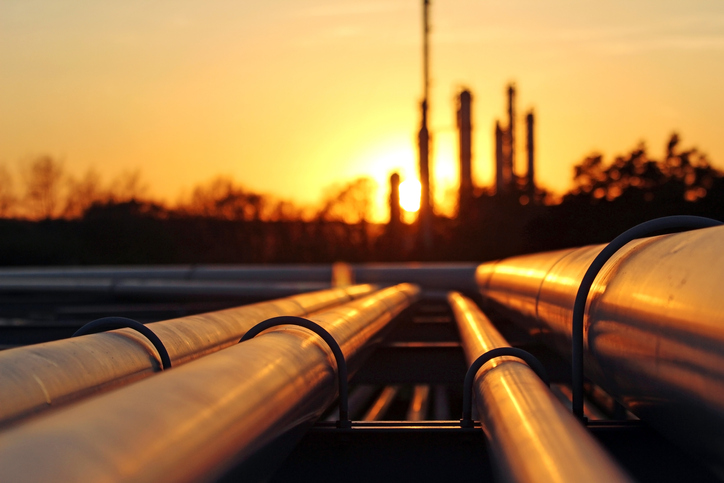ii view: Wood Group debt down, dividend yield 9%
The nuclear business is now sold and debt reduced, but the ride for investors is unlikely to be smooth.
10th March 2020 11:27
by Keith Bowman from interactive investor
The nuclear business is now sold and debt reduced, but the ride for investors is unlikely to be smooth.

Full-year results to 31 December 2019
- Revenue down 1.2% to $9.89 billion
- Operating profit before exceptional items up 15% to $411 million
- Proposed final dividend of 23.9 cents per share
- Total dividend for the year up 1% to 35.3 cents per share
- Net debt down 6% to $1.42 billion
Guidance
- Expects modest underlying revenue and adjusted profit (EBITDA) growth
- Too early to quantify coronavirus and oil price fall impact on forecasts
Chief executive Robin Watson said:
"In 2019 we delivered earnings growth, margin improvement and strong cash generation which resulted in a reduction in net debt. Our strategy has driven decisive action to align Wood with the significant growth opportunities in energy transition and sustainable infrastructure and we made good progress on portfolio optimisation and the repositioning of our consulting, project and operations service offering in 2019.
"We are confident that from this foundation we are building a differentiated, premium, higher margin business, supported by a continued focus on margin improvement, execution excellence and portfolio optimisation."
ii round-up:
Against a rout in oil stocks the previous day, energy services and consultancy business Wood Group (LSE:WG.) reported in-line full-year results.
Group debt, raised following its 2017 acquisition of rival Amec Foster Wheeler for £2.2 billion ($2.7 billion), fell as promised by management to below $1.5 billion, pushed lower by the sale of its nuclear and industrial services businesses.
Wood, whose expertise stretches from innovative pipeline design to wind turbine and tidal energy, has been looking to refocus the company and cut debt following its business diversifying acquisition.
A strategy running to 2023 is looking to build a flexible, asset light business, aligned with the emerging trends in energy transition and sustainable infrastructure.
Up and midstream oil and gas revenues now only account for 35% of the group’s total. Its chairman noted that “In a world where environmental concerns have moved swiftly to the top of the global agenda, the future will be very different from the past.”
Cost savings of $60 million aided profit performance. Accompanying management outlook comments pointed to modest underlying revenue and adjusted profit growth, although excluded any potential impact from the coronavirus and the falling oil price.
Broker Morgan Stanley now expects high-single-digit earnings downgrades for 2020. The shares and following a 25% plus fall year-to date rose by more than 5% in late morning UK market trading.
ii view:
A transition from its takeover of Amec Foster Wheeler remains the core focus for investors. A reduction in group debt to below $1.5 billion was achieved, while a fall in the order book to $7.9 billion from June’s $9.2 billion reflects the removal of legacy fixed price work as the portfolio is de-risked.
Despite exposure to other sectors such as infrastructure, mining and power, oil & gas is still an important contributor to overall performance. Volatility in the oil price and its impact on the group’s customers still matters. It recently extended a contract with Saudi Aramco’s subsidiary, Aramco Overseas.
For investors, a 20%-plus fall in the share price during 2019, in line with rival Petrofac (LSE:PFC), acts as a reminder as to the inherent risks. The exact hit from both coronavirus and the fall in the oil price is also yet to be quantified. On the upside, a refocusing at the company continues, while a dividend yield of over 9% is highly attractive, although could be at risk of being cut should troubles in the oil world persist.
Positives:
- Business disposals allow for greater focus on areas of leadership and strength
- Attractive dividend yield
Negatives:
- Underlying customer investment can be volatile and uncertain
- Earnings dividend cover of under two times is down from a three-year average of nearer three times
The average rating of stock market analysts:
Buy
These articles are provided for information purposes only. Occasionally, an opinion about whether to buy or sell a specific investment may be provided by third parties. The content is not intended to be a personal recommendation to buy or sell any financial instrument or product, or to adopt any investment strategy as it is not provided based on an assessment of your investing knowledge and experience, your financial situation or your investment objectives. The value of your investments, and the income derived from them, may go down as well as up. You may not get back all the money that you invest. The investments referred to in this article may not be suitable for all investors, and if in doubt, an investor should seek advice from a qualified investment adviser.
Full performance can be found on the company or index summary page on the interactive investor website. Simply click on the company's or index name highlighted in the article.